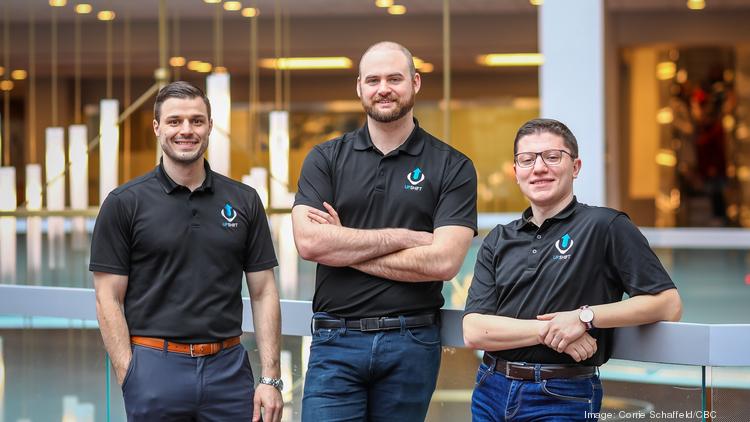Difficulties for finding the appropriate staff was what drove Upshift’s co-founder and CEO Steve Anevski to think about what is the future of the workforce industry. He came up with a solution for a mobile-based marketplace.
Founded in 2016 in Cincinnati, Ohio by Anevski and co-founders Alex Pantich and Nick Jordanovski, today Upshift is disrupting the $150 billion worth recruiting industry with its solution that matches temporary workers with open positions.
“Since the very beginning, we were led by the thought that for every problem there are always different ideas and directions of its resolution, so gradually the Upshift idea was born and nourished by all of us,” Upshift’s CTO Nick Jordanovski tells The Recursive.
The whole process of the development of the concept itself took several weeks and in the end, the whole effort was channeled into a well-thought-out plan in which the three co-founders implemented all the necessary aspects for the development of the solution.
In the beginning, Upshift’s focus was on the recruiting needs found with the hospitality brands, where Anevski had extensive experience from working as a restaurateur.Jordanovski himself has a extensive background as a developer,
However, very soon the concept evolved to include all those industries which search for employees and offer completely flexible or part-time working hours. In 2020, the startup also raised $3.7 million in a Series A round, which managed to contribute for its expansion on the market.
Upshift’s distinguished business model
The one thing that sets Upshift’s business apart from the other traditional solutions is the overall business model that the company applies, Jordanovski explains.
First and foremost, the businesses continually have access to a vast talent pool and can very easily employ hourly workers with peace of mind and full predictability, he says.
“Additionally, through our platform, they can find qualified staff that they may want to keep and employ permanently. We offer high-quality workers and our results so far have been a 95.6% Job Success Rate, and a less than 2% No-Call, No-Show Rate. Furthermore, we’re a W-2 staffing platform, which means we handle everything regarding the HR part, including timesheets, benefits, and payroll,” Jordanovski tells The Recursive.
According to him, the only thing the businesses need to do is to post a “shift” every time they need more staff and they can expect quality workers who will show up in the business and complete the work in the best possible way.
“In order for all this to function in this way, every Upshifter (a person who works through Upshift) before having the opportunity to be a user of the platform, they go through a successful screening process, a short interview, and onboarding.” Jordanovski adds.
The company is also transparent in regard to the conditions under which the businesses offer work, as well as for the quality of the Upshifters themselves, which is why every business can view what other businesses think and what is the rating of the Upshifter in question.

Expanding in the US and abroad
With the company having two co-founders, Anevski and Jordanovski, of Macedonian origin, Upshift also has a software development team based in North Macedonia.
“The Macedonia Upshift team, we can say with certainty, is one of the best that can build a product on this level. In the past few months, we are proud that our tech team in Skopje has grown by almost 40%, and it has 25 members at the moment. We dedicate great attention to the increase of our presence in the local IT market and building a strong employer branding but we also implement data-driven recruitment functions and practices in order to achieve greater success in this field,” Jordanovski explains.
In the following period, Upshift also plans many activities directed towards the development of the young talents in the country, starting the first Upshift University and also focusing on its tech team expansion.
As the “gig” economy is also expanding globally, the company’s future plans include expanding its recruiting platform in the US and abroad as well.
While in the US, the gig economy is the main source of income for over 10% of workers, this type of work has proven very difficult to regulate. Therefore, Upshift’s solution for providing healthcare and other employee benefits is also a step in the right direction when it comes to regulating the gig economy.
“Taking into consideration that more and more people search for easily accessible flexible work engagements and the possibility of an additional income, we strive towards having the benefit of our digital platform available to as many people as possible, all over the world,” Jordanovski emphasizes.








